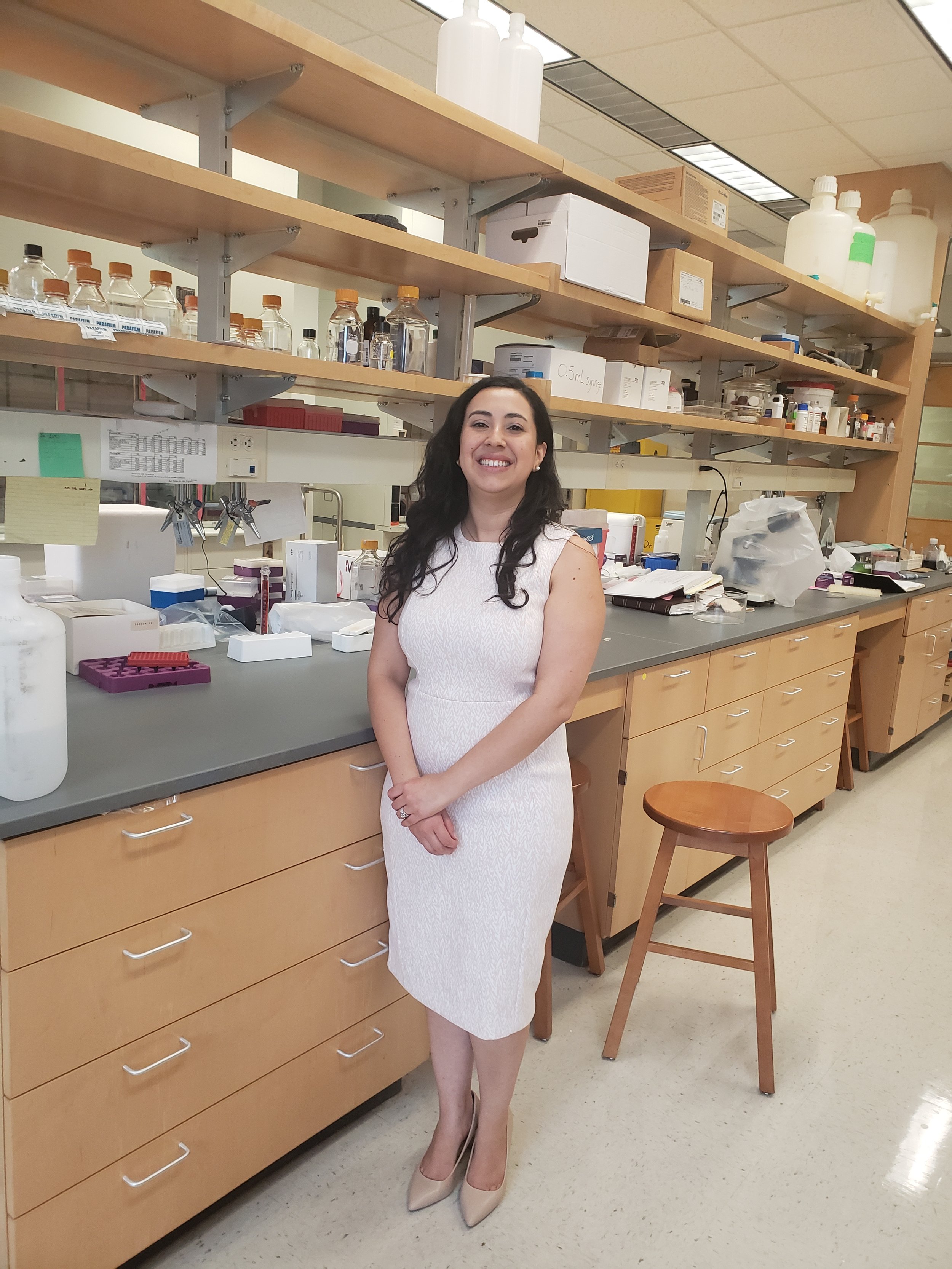What You Need to Know About Invitae's Common Hereditary Cancers Panel
Written by Karin Vallega, PhD
Can you think of someone in your family who was diagnosed with cancer?
As a cancer researcher, people always want to tell me their stories and ask questions. As a millennial, people within our generation aren’t usually the patient. But they tell me about their mothers and fathers, their grandparents, their aunts and uncles and older siblings. And very often, when recounting the story about their family member, the same question comes up; “Could I get this too?”
The causes of cancer aren’t always clear. But for some types of cancer, certain genetic mutations can make the cancer more likely, or more severe. And sometimes, these genetic changes can be passed down through families.
These changes, called genetic mutations or variants, are differences in the deoxyribonucleic acid (DNA) sequence, which contains the genetic information necessary for people to grow, function, and reproduce. Some variants have no known impacts, but others can have important biological effects, including making you more susceptible to cancer or other diseases.
As scientists and doctors learn more about these genetic variants, a lot of research has been done trying to develop a test that could screen for these variants and give patients insight into their own personal cancer risk.
In September 2023, the Invitae Common Hereditary Cancers Panel was approved by the FDA. This is the first test of its kind to be approved. The Common Hereditary Cancers Panel tests for genetic variants that are linked to certain hereditary cancer.
For millennials, this test could provide essential health information. If you are at higher risk, you could advocate for earlier screening, adopt healthier habits, and even help your family know their risk too.
What is Invitae’s Common Hereditary Cancers Panel?
How it works
For this test, a blood sample is collected at your doctor’s office and sent in for testing. The DNA is isolated and next-generation sequencing is used. This technique can sequence large sections of your DNA very quickly, and look for variants in the genes of interest. The test looks at 47 genes, each of which has many known gene changes, which results in tens of thousands of genetic variants screened. It was made using over 9,000 samples and is more than 99% accurate for the tested variant types.
What can it test for?
Among the 47 target genes are BRCA1 and BRCA2. Variations in these genes are associated with an increased risk of certain cancers, most commonly breast and ovarian cancer.
While about 13% of women in the general population will develop breast cancer at some point, 55%-72% of women with a BRCA1 mutation and 45%-69% of women with a BRCA2 mutation will develop breast cancer by age 80.
Similarly, the risk of ovarian cancer increases from 1.2% to 39%-44% with a BRCA1 mutation and 11-17% with a BRCA2 mutation. And while breast cancer is usually associated with women, it is important to remember men can also get breast cancer.
A BRCA1 or BRCA2 mutation in men can increase the risk of breast, prostate, and pancreatic cancers. People with these inherited gene mutations also tend to develop cancer at earlier ages than the average person.
Karin Vallega, PhD, is a fellow millennial and cancer researcher. She is a postdoctoral fellow at Emory’s Winship Cancer Institute.
The screening test can also detect variants in several genes (MLH1, MSH2, MSH6, and PMS2) that cause Lynch Syndrome, which increases the risk of developing many types of cancer, including colorectal, endometrial, ovarian, brain, and others. This disease can also cause these cancers to develop earlier than expected.
For instance, patients with Lynch disease may develop colorectal cancer as early as in their 20s. Luba, a millennial with Lynch syndrome who developed colorectal cancer, shared her story here.
The test also looks for variants in STK11, which is associated with Peutz-Jeghers Syndrome. People with this rare disease are at high risk of developing many cancers (breast, colon and rectum, pancreas, stomach, testicular, ovarian, lung, cervical, and other types). Another gene, CDH1, is associated with gastric (stomach) cancer.
In addition to screening individuals who want to understand their personal cancer risks, the Invitae Common Hereditary Cancers Panel can also be used in patients who are already diagnosed. This could help doctors understand how to best treat their patients. As an added bonus, with more people being tested, new genetic variants could also be found as patterns emerge in the data.
Why the FDA authorization is important
The FDA authorization of the Invitae’s Common Hereditary Cancers Panel test is significant because it is the first of its kind to be approved.
Invitae was granted De Novo (anew) authorization, which is used for new, low- or moderate-risk devices. With this approval, the FDA created a new regulatory classification.
This paves the way for other similar tests to be approved and enter the market more quickly. Now that the regulatory classification exists, similar devices can go through the FDA’s simpler 510(k) premarket process, which grants authorization if the new device is proven to be equivalent to an already approved device.
Who should consider testing?
You may be wondering if this test could be beneficial for you. People who should consider using the Common Hereditary Cancers Screening Panel include:
Those with a family history of cancers, with multiple family members diagnosed with the same type of cancer, especially breast, ovarian, and gastric cancers
Individuals who meet certain criteria, like early age of diagnosis
People with diagnosed cancers who want to know if their children may be affected
People concerned with their individual genetic cancer risks
What to expect with testing
This test is most commonly done using a blood sample, but a saliva sample or cheek swab can also be used. The sample can be collected at your doctor’s office or at a laboratory testing site. It will be sent off for testing, and your results will usually be ready in 10-21 days. You should review your tests with your doctor and a genetic counselor to understand your results and risks. Your doctor will explain your individual risk and recommend any next steps that should be taken.
What happens after testing?
If a high-risk genetic mutation is found, your doctor may recommend enhanced screening for cancers related to these genes. There are also preventative options like a mastectomy (removal of one or both breasts) or an oophorectomy (removal of one or both ovaries).
If you are diagnosed with cancer in the future or have taken the test once already diagnosed, your specific genetic variant information could help your doctor tailor your treatment.
Your genetic profile can also be beneficial for your family, as it will inform your family members of their risks. If a genetic variant is found to be hereditary, meaning it can be passed down from parents to children, your family members can also talk to their doctors about testing and increased surveillance to reduce their cancer risk. This is called cascade testing.
Cascade testing is one way high-risk individuals can be identified, and can help them take early steps to prevent cancer or treat it before it becomes too advanced. Often, by the time symptoms show, treatments are less effective.
Cascade testing is important for BRCA1 and BRCA2 mutations, and Lynch Syndrome.
The Colorectal Cancer Foundation is currently recruiting for a study called IGNITE-TX that is about cascade testing. If you have been diagnosed with a BRCA1 or BRCA 2 mutation, or Lynch Syndrome, and have family members who have not been tested, you may be eligible. The study will give you resources to help you talk to your family and get them testing too.
The results of the screening panel can also be used for family planning. Individuals who are worried about passing down high-risk genetic variants can speak to genetic counselors about their risk. Assisted reproductive technologies and preimplantation genetic testing can be used to avoid these variants being inherited by your child.
It is important to note that this screening test can have false-positives (meaning a variant is detected when there is not one) or false-negatives (meaning a variant is not detected although it exists).
This test is over 99% accurate, but there is always some risk. In addition, this test can only determine your predisposition to cancer.
Even if no high-risk variant is found, an individual can still develop cancer within their lifetime. This is because this test does not look for all types of cancers, and many factors, some genetic and some not, contribute to the development of cancer.
A positive result means an individual has a higher risk of cancer, but this does not mean that person is guaranteed to develop cancer.
You should always discuss your results with your doctor and a genetic counselor.
Where to find out more
Invitae’s Common Hereditary Cancers Panel is only available through your doctor’s office. If you think this test would be beneficial to you, talk to your doctor.
To read more about this screening test, and for a complete list of the target genes and their associated conditions, you can go to Invitae’s page here.
To read more about the genetics of cancer, you can go to the National Cancer Institute’s, The Genetics of Cancer page here.
Subscribe to the YMyHealth newsletter to stay up to date on everything that’s health-related for millennials!



